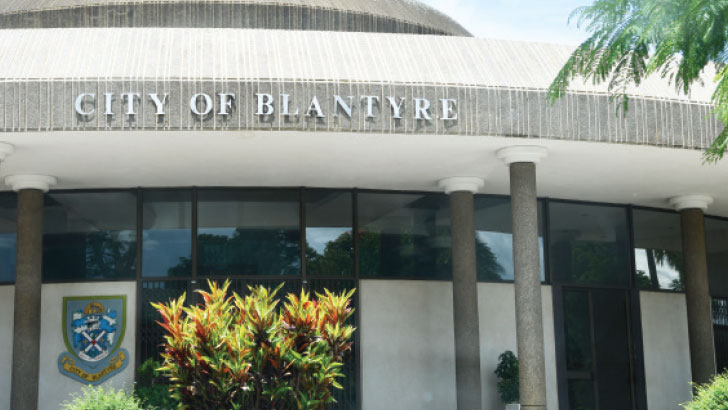K4 billion lost in councils
Non-compliance to applicable financial regulations and procedures is fostering financial mismanagement in local government councils, with the 2019/20 financial audit of 35 local councils revealing chronic flaws of accounting transactions.
According to the Auditor General’s report on the accounts of city, municipal and district councils for the Financial Year Ended June 30 2020 dated September 1 2021 and published on the National Audit Office (NAO) website on January 11 this year, K4 billion vanished from local authorities through expenditure irregularities in the 2019/20 fiscal year.

The figure represents 6.72 percent of the total allocations to all councils in the financial year.
The 124-page report classifies findings into eight categories, namely expenditure management, financial statement related issues, procurement, project management, receivables management, record management, revenue management and payables management.
On ex p e n d i t u r e management irregularities, the financial and compliance audit reveals that most councils failed to manage expenditure in accordance with provisions in the Public Finance Management Act, 2003 and other financial regulations such as Treasury instructions, desk instructions, Constituency Development Fund (CDF) and District Development Fund (DDF) guidelines, among others.
In his comment in the executive summary, Auditor General Thomas Makiwa attributes the irregularities to utter disregard for applicable public finance management laws and regulations by local authorities in all the 35 councils across the country, coupled with fragile internal operational control systems, among others.
Other anomalies were failure to remit pay as you earn (Paye) taxes to Malawi Revenue Authority (MRA), failure to process transactions through the integrated financial management information system (Ifmis), failure to administer deceased estates, embezzlement of deceased estate fund and failure to recover loans and advances.
For instance, the audit presents unaccounted for funds at K1 266 643 464.21, irregular expenditures at K324 359 125.28, misallocation of funds (not approved by Parliament) at K160 629 493.07, failure to remit PAYE taxes to MRA at K2 058 982 209.22 and miscellaneous irregularities at K455 206 553.32.
According to Makiwa, t h i s w a s o b s e r v e d through unjustifiable subsistence allowances, unaccounted for funds, expenditures made without following procedures (irregular expenditure) and misallocation of funds (funds spent on different functions without Parliament’s approval).
Reads the report in part: “Local Government Act of 1998 Section 53 [1] requires all councils to keep proper books of accounts and other records from which financial statements or final accounts will be produced.
“The audit has revealed that most councils had difficulties in preparing financial statements in accordance with generally accepted accounting principles. Only two out of the 35 councils had a clean audit opinion [unqualified] while a majority of 28 councils were issued with a qualified opinion and four councils were issued with an adverse audit opinion.”
The report further states that the 2020 General Resource Fund (GRF) for local councils had a total approved budget of K248 billion, which was revised to K283 billion, representing a K51 billion increase in GRF expenditure by local councils from 2019.
On financial statement-related issues, the report puts differences between notes and financial statement figures at K32 396 284 720.05, failure to provide supporting schedules at K5 966 566 169.03, failure to depreciate, to keep fixed asset register and to revalue assets at K17 765 982 952.81 and over-miscellaneous at K4 881 851 486.54.
The report pegs single sourcing without the approval of Public Procurement and Disposal of Public Assets and procurement of goods and services without approv a l from Inter n a l Procurement and Disposal Committees at K109 337 788.44, project implemented but not in the District Development Plan at K605 236 818.39, record management irregularities at K2 335 834 130.97, receivables management irregularities at K2 142 502 335.63, payables management irregularities at K71 939 753.62 and revenue management irregularities at K803 025 794.35.
However, when contacted for comment on what the government is doing to tighten fiscal prudence in local authorities, Minister of Local Government Blessings Chinsinga referred The Nation to Principal Secretary in the ministry Esmie Kainja whose mobile was out of reach.
But commenting on the issue, National Local Government Finance Committee (NLGFC) acting executive director Kondwani Santhe hailed NAO for coming up with what he described as a “professional and elaborate” work on the performance of councils.
He said: “When you look at the issues raised in the report it’s quite a big reduction from what used to happen previously. Although there are two issues of non-account for vouchers and funds, you will find that there are drastic reductions in that area.
Santhe also expressed gratitude that all the 35 councils countrywide are now up to date with audits, which he said is a big plus in terms of public finance management in the local authorities.
“In the past two years or so, some councils had five years on non-audits, so this is a great progress. Again if you look at the audit opinion, you’ll note that there are two councils which have a clean audit.
“Not that they don’t have any issues, but in accounting, an opinion like an unqualified one means there are very minor issues to do with financial management, which is unprecedented. That has never happened,” he said.






One Comment